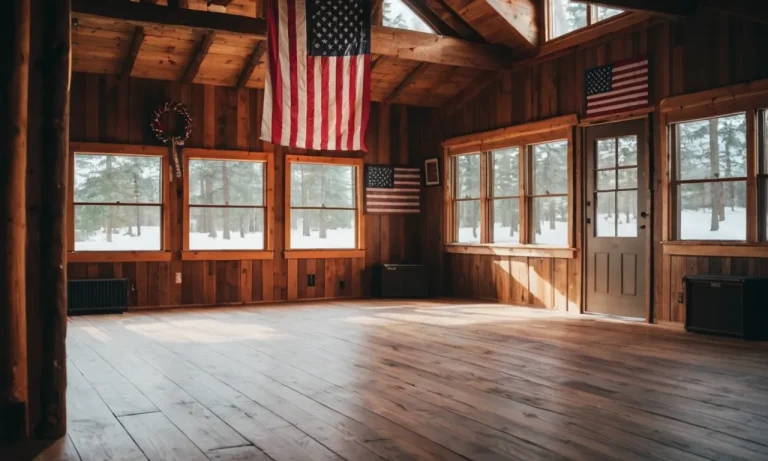How Long Can You Stay in a Hotel? A Comprehensive Guide
Have you ever found yourself in a situation where you need to extend your hotel stay, but you’re unsure about the rules and regulations? Whether you’re on a business trip, a family vacation, or simply exploring a new city, understanding the nuances of hotel stays can be crucial.
If you’re short on time, here’s a quick answer to your question: The length of time you can stay in a hotel varies depending on several factors, including the hotel’s policies, local laws, and the purpose of your stay.
Generally, hotels allow guests to stay for a few days to several weeks or even months, but there may be restrictions or additional fees for extended stays.
In this comprehensive article, we’ll delve into the details of how long you can stay in a hotel, exploring the different scenarios, legal considerations, and practical tips to ensure a smooth and hassle-free experience.
Hotel Policies and Regulations
Standard Hotel Stay Durations
Most hotels are designed to accommodate short-term stays, typically ranging from a single night to a week or two. This is the standard operating model for the hospitality industry, catering to business travelers, vacationers, and those seeking temporary accommodation.
According to Statista, the average hotel stay in the United States is around 2.4 nights. 🏨
However, it’s important to note that hotels may have their own specific policies regarding maximum stay durations. Some hotels may impose a limit of 14 or 28 consecutive nights, after which guests are required to check out and potentially re-book if they wish to extend their stay further.
This practice helps hotels maintain a steady flow of guests and ensure availability for new arrivals. 👍
Extended Stay Policies
While most hotels cater to short-term stays, some establishments offer extended stay options for guests who require longer-term accommodation. These hotels, often referred to as “extended stay” or “residence” hotels, are designed to provide a more home-like environment with amenities such as kitchenettes, laundry facilities, and larger living spaces.
🏡
Extended stay hotels typically allow guests to book for extended periods, ranging from a few weeks to several months or even longer. According to the American Hotel & Lodging Association (AHLA), extended stay hotels cater to a diverse range of guests, including business travelers, relocating families, and those undergoing medical treatments or temporary work assignments.
Fees and Charges for Long-Term Stays
While hotels may allow extended stays, they often have specific policies and fees in place to accommodate these longer bookings. Many hotels offer discounted rates for extended stays, with the nightly rate decreasing as the length of stay increases.
For example, a hotel might charge $150 per night for a one-week stay, but $120 per night for a month-long stay. 💰
Additionally, hotels may require a security deposit or upfront payment for long-term stays to cover potential damages or unpaid fees. It’s also common for hotels to charge additional fees for services like housekeeping, laundry, or parking, especially for extended stays.
Guests should carefully review the hotel’s policies and fees before booking a long-term stay to avoid any surprises or unexpected charges.
It’s worth noting that some hotels may have strict policies regarding maximum stay durations, even for extended stay guests. For example, a hotel might have a policy that limits stays to no more than 6 months or 1 year, after which guests must vacate the premises.
These policies help hotels maintain their status as temporary accommodation and avoid potential legal issues related to tenant rights. 🤔
Legal Considerations and Local Laws
When staying in a hotel for an extended period, it’s crucial to understand the legal implications and local laws that govern such arrangements. These regulations can vary significantly from one location to another, so it’s essential to familiarize yourself with the specific rules that apply to your intended destination.
Tenant Rights and Landlord-Tenant Laws
Depending on the duration of your stay and the laws of the jurisdiction, you may be considered a tenant rather than a hotel guest after a certain period. This distinction can have significant consequences, as tenant rights and landlord-tenant laws come into play.
For instance, in some states, like California, if you stay in a hotel for more than 30 consecutive days, you may be considered a tenant, entitling you to certain rights and protections under state law.
As a tenant, you may have the right to receive proper notice before eviction, maintain a habitable living space, and enjoy privacy protections. However, you may also be subject to additional responsibilities, such as paying rent on time and adhering to the terms of a lease agreement.
It’s essential to understand your rights and obligations to avoid any legal disputes or potential eviction.
Tax Implications for Long-Term Stays
Extended hotel stays can also have tax implications, both for you and the hotel. Depending on the length of your stay and the tax laws in the jurisdiction, you may be subject to local taxes, such as occupancy or lodging taxes.
Similarly, the hotel may be required to collect and remit these taxes on your behalf.
Additionally, if you’re staying in a hotel for business purposes, there may be tax implications related to your expenses. It’s advisable to consult with a tax professional or refer to resources like the IRS guidelines on travel expenses to ensure compliance with applicable tax laws.
Zoning Regulations and Residential Restrictions
Many cities and municipalities have zoning regulations and residential restrictions that govern the use of properties for residential purposes. These regulations may impact the ability of hotels to accommodate long-term guests or impose specific requirements on the hotel’s operations.
For example, some areas may have restrictions on the maximum length of stay allowed in a hotel or may require the hotel to obtain a special permit for long-term rentals. Failure to comply with these regulations can result in fines or other penalties for the hotel.
It’s essential to research the local zoning laws and residential restrictions in the area where you plan to stay to ensure your extended hotel stay is in compliance with local regulations. You can often find this information on the municipal government’s website or by contacting the local zoning office.
| Consideration | Potential Impact |
|---|---|
| Tenant Rights and Landlord-Tenant Laws | Gain tenant rights and protections, but also additional responsibilities |
| Tax Implications | Subject to local taxes, potential tax implications for business expenses |
| Zoning Regulations and Residential Restrictions | Restrictions on maximum stay length, potential permit requirements for hotels |
Remember, navigating the legal landscape of long-term hotel stays can be complex, and it’s always advisable to consult with a local attorney or seek guidance from relevant authorities to ensure you’re in full compliance with all applicable laws and regulations.
Don’t hesitate to ask for clarification or seek professional advice if you’re unsure about any aspect of your extended hotel stay. Staying informed and compliant can save you from potential legal troubles and ensure a hassle-free experience during your extended hotel stay.
Factors Influencing Hotel Stay Duration
Purpose of Stay (Business, Leisure, Relocation)
The primary reason for your hotel stay plays a pivotal role in determining its duration. Business travelers often have a predetermined schedule, with stays ranging from a few days to a week or more, depending on the nature of their work and meetings.
According to a recent survey by Hotel News Resource, the average length of a business trip in the United States is around 3.7 nights. On the other hand, leisure travelers tend to have more flexibility, with stays ranging from a weekend getaway to an extended vacation of several weeks or even months.
Relocation is another common reason for extended hotel stays. When moving to a new city or region, individuals or families may temporarily reside in a hotel while searching for permanent housing. These stays can last anywhere from a few weeks to several months, depending on the availability of suitable housing options and the complexity of the relocation process.
A study by the American Moving & Storage Association found that the average relocation stay in a hotel is approximately 21 days.
Availability of Alternative Accommodations
The availability of alternative accommodations, such as vacation rentals, Airbnb, or extended-stay hotels, can significantly influence the duration of a hotel stay. If affordable and suitable alternatives are readily available, guests may opt for those options, especially for longer stays.
However, in areas with limited alternative accommodations or during peak travel seasons, guests may have no choice but to extend their hotel stay.
According to a report by Statista, the global vacation rental market is expected to reach $123.7 billion by 2027, highlighting the growing popularity and availability of alternative accommodations. This trend could potentially impact the duration of hotel stays as travelers seek more cost-effective and flexible options for longer periods.
Personal Preferences and Budgetary Constraints
Personal preferences and budgetary constraints also play a crucial role in determining the length of a hotel stay. Some travelers may prefer the convenience and amenities of a hotel, even for extended stays, while others may seek more cost-effective options for longer durations.
Additionally, budget considerations can influence the choice of accommodation and the length of stay. 😊
According to a survey by Hotel News Resource, approximately 42% of travelers cited budget as the primary factor influencing their accommodation choice. Interestingly, the same survey revealed that 28% of respondents were willing to pay a premium for a hotel stay if it provided exceptional value or amenities. This highlights the importance of personal preferences and the willingness to splurge on hotel stays for some travelers.
Tips for Extending Your Hotel Stay
Communicating with Hotel Management
Effective communication with hotel management is key to ensuring a smooth and successful extended stay. Be upfront about your plans from the outset and keep an open dialogue throughout your stay. Hotels often have policies or procedures in place for long-term guests, and being transparent about your needs can help them accommodate you better.
Don’t hesitate to ask questions, express concerns, or make requests – a good hotel staff will strive to make your extended stay as comfortable as possible.
According to a survey by the American Hotel & Lodging Association, 75% of hotels offer special rates or packages for extended stays. By communicating your intentions early on, you may be able to take advantage of these discounts or negotiate a better deal. 😊
Negotiating Rates for Long-Term Stays
If you plan on staying at a hotel for an extended period, it’s wise to negotiate rates with the management. Many hotels are willing to offer discounts for longer stays, as it ensures a steady stream of revenue for them.
Don’t be afraid to ask for a better rate, especially if you’re a loyal customer or part of their rewards program.
According to a study by Statista, the average daily rate for hotels in the United States was $137.80 in 2022. However, for extended stays of 30 days or more, rates can often be negotiated down by 20-30%. 👍
When negotiating, it’s helpful to have a clear idea of your budget and the length of your intended stay. You can also research rates at nearby hotels or online travel sites to use as leverage in your negotiations. Remember, a polite and respectful approach goes a long way in securing a better deal.
Exploring Alternative Accommodation Options
While hotels are a convenient option for extended stays, they may not always be the most cost-effective or practical choice, especially for longer periods. In such cases, it’s worth exploring alternative accommodation options like serviced apartments, vacation rentals, or even long-term rental properties.
Serviced apartments, for example, offer the convenience of a hotel with the added benefits of more living space, kitchens, and often lower rates for extended stays. According to Corporate Housing by Owner, serviced apartments can save travelers up to 50% compared to traditional hotels for stays of 30 days or more.
🎉
Vacation rental platforms like Airbnb and VRBO have also become popular choices for extended stays, offering unique accommodations and the comforts of home. However, be sure to thoroughly research the property, read reviews, and communicate clearly with the host about your needs and the duration of your stay.
Ultimately, the best accommodation option for your extended stay will depend on your budget, preferences, and specific requirements. Don’t be afraid to explore alternatives and compare costs – you might just find the perfect fit that offers both comfort and value.
Special Considerations for Long-Term Stays
Amenities and Services for Extended Stays
When you’re planning an extended stay at a hotel, it’s essential to consider the amenities and services that can make your temporary residence feel more like a home away from home. Many hotels offer specialized packages or accommodations designed specifically for long-term guests.
These may include fully-equipped kitchenettes, laundry facilities, and even grocery delivery services. According to a survey by HotelNewsResource.com, 78% of travelers who stayed in a hotel for more than a month cited in-room kitchens as a crucial amenity.
Additionally, some hotels provide dedicated workspaces, high-speed internet, and business centers to cater to guests who need to work remotely. These amenities can be a game-changer for digital nomads or professionals on extended business trips.
Don’t be afraid to ask about any discounts or loyalty programs that might be available for long-term stays, as these can help you save money and enjoy additional perks.
Maintaining Privacy and Security
While hotels strive to provide a safe and secure environment, it’s crucial to take extra precautions when staying for an extended period. Privacy and security should be top priorities, especially if you’re traveling with valuable belongings or sensitive information.
Consider requesting a room on a higher floor or in a quieter area of the hotel to minimize foot traffic and potential disturbances.
It’s also advisable to familiarize yourself with the hotel’s security protocols and emergency procedures. Many hotels offer in-room safes or safety deposit boxes at the front desk, which can provide peace of mind when storing important documents or valuables.
According to a study by the American Hotel & Lodging Association, hotels with robust security measures, such as 24/7 surveillance and keycard access, reported a 30% lower rate of security incidents.
Building a Temporary Home Away from Home
One of the challenges of a long-term hotel stay is creating a sense of comfort and familiarity in a temporary environment. While hotels aim to provide a welcoming atmosphere, it’s essential to personalize your space and establish routines that make you feel at home.
Consider bringing personal items like photos, artwork, or small decorative pieces to add a touch of warmth and personality to your room.
Establishing a routine can also help you feel more grounded during your extended stay. Whether it’s maintaining a consistent workout schedule at the hotel’s fitness center or exploring nearby restaurants and attractions, finding ways to incorporate familiar habits can make a significant difference in your overall experience.
Don’t be afraid to ask the hotel staff for recommendations on local attractions, events, or even community groups that could help you connect with others and build a sense of community during your stay.
Remember, communication is key when it comes to long-term hotel stays. Don’t hesitate to voice any concerns or requests to the hotel staff – after all, their goal is to ensure you have a comfortable and enjoyable experience, whether you’re staying for a week or several months. 😊
Conclusion
Understanding how long you can stay in a hotel is essential for travelers, whether you’re planning a short getaway or an extended stay. By considering hotel policies, legal regulations, and personal factors, you can make informed decisions and ensure a comfortable and hassle-free experience.
Remember, open communication with hotel management, exploring alternative accommodation options, and being mindful of local laws can go a long way in ensuring a smooth and enjoyable stay. With the right knowledge and preparation, you can make the most of your time away from home, whether it’s for a few days or several months.







